How true does a memoir have to be? That question has been the basis of an ongoing debate kicked off by the revelation, five years ago, that much of James Frey’s bestselling “A Million Little Pieces” was made up.
Unfortunately, it has never been adequately answered. Commentators have tended to gravitate to oversimplifications: one side asserting that every word in a book sold in the non-fiction section of the store must be fact-checked and airtight, the other that “memoir” implies memory, which implies a not-the-truth-but-my-truth subjectivity bordering on carte blanche.
A better, more nuanced answer would recognize the complexity of the issue. Here’s a try: Inaccuracy is a problem in a memoir based on the extent to which it gets details as well as larger truths demonstrably wrong, depicts identifiable people in a negative light, fails to recognize the limits of memory, is poorly written, is self-serving, or otherwise wears its agenda on its sleeve. The more of these things it does and the more egregiously it does them, the bigger the problem is.
A rating system for memoirs
We decided to devise a way to apply these standards to the truthy aspects of memoir. Here’s the (half-facetious, but also half-serious) scoring system we came up with:

The charts below, analyzing some recent and not-so-recent memoirs, attempt to quantify the process; selected annotations have been added. Obviously, the charts themselves have a strong element of subjectivity, both in some of their metrics (especially E) and in the interpretation of the final scores. For us, a memoir “passes” if it scores 65 or more (the “Yagoda Line”). For others the threshold may be 40, or 80. In fact, such a notion of personal judgment is part of the point.
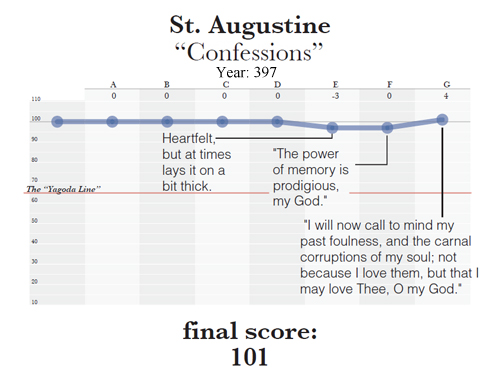
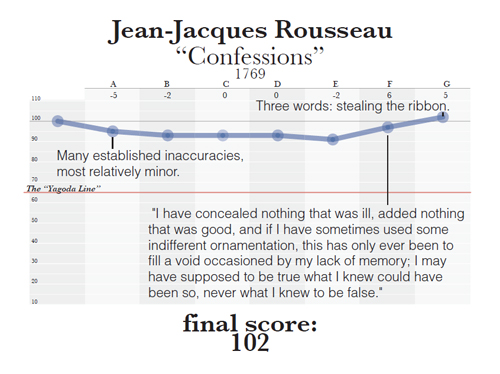
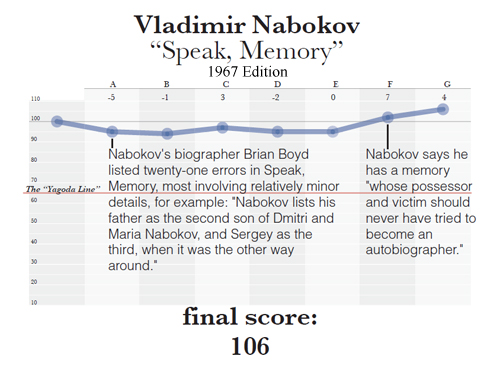
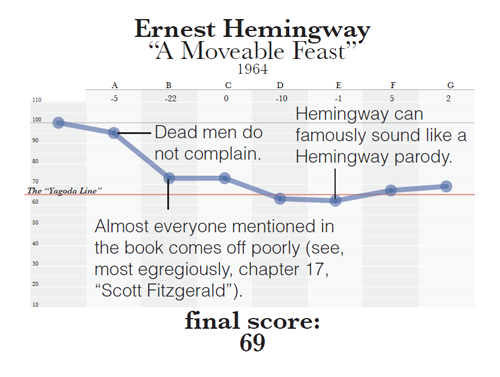
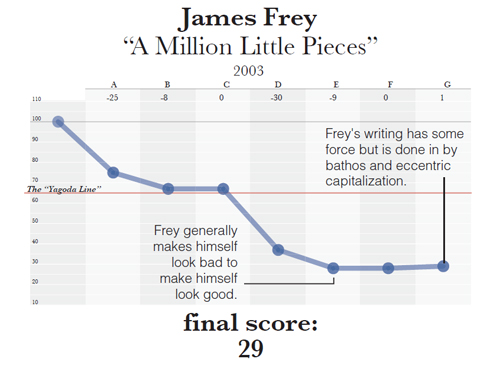
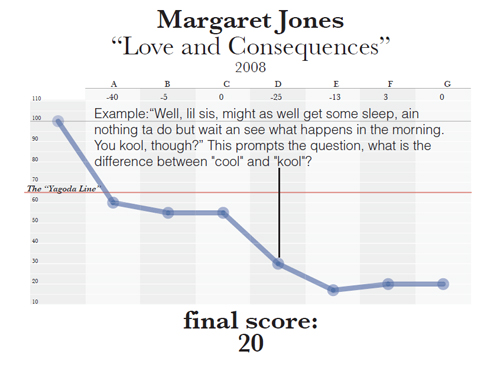
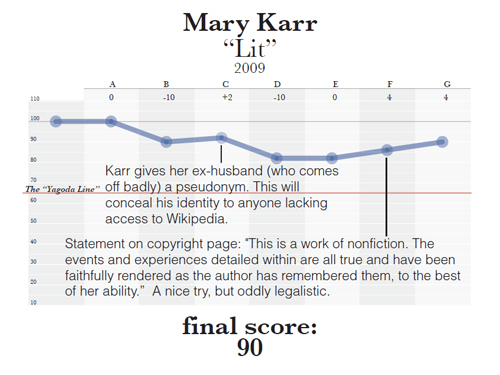
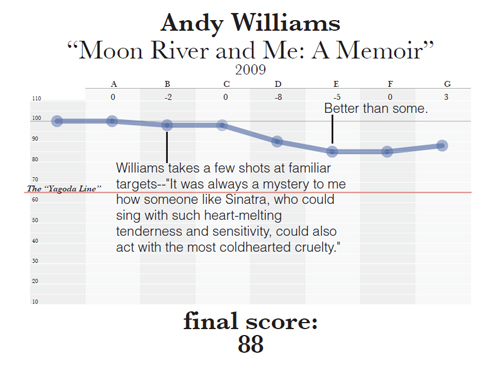
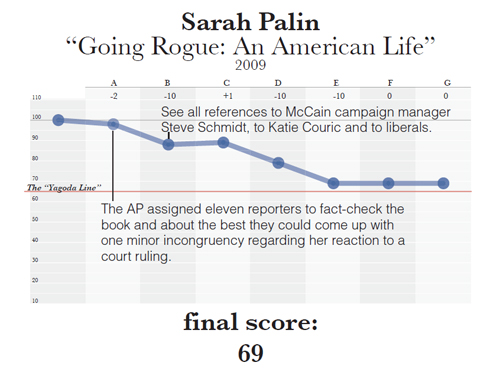
Clear-cut cases exist only on the extremes, the completely discredited “Love and Consequences” (that’s the one in which an upper-middle-class white author fabricated a childhood in the L.A. ’hood) on one end, Rousseau’s “Confessions” on the other. In the large middle, an informed reader has to make the call.
Interested in making a pre-emptive strike for truthy writing? Memoirists can use our convenient printable one-page PDF worksheet to evaluate their own work alongside some of the most famous and infamous examples in history.
Ben Yagoda is an English professor at the University of Delaware and author of “Memoir: A History.” He blogs at britishisms.wordpress.com. Dan DeLorenzo is a journalist, cartographer, infographics artist, photographer, painter and ping-pong enthusiast living and working on Manhattan’s Lower East Side.


